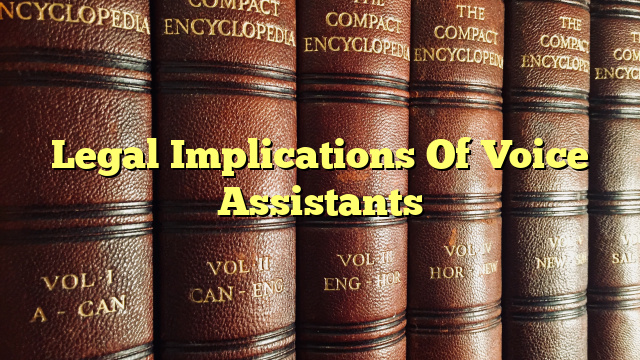Table of Contents
Ethical Concerns of Voice Assistants
Voice assistants, such as Amazon’s Alexa and Apple’s Siri, have raised several ethical concerns. One major concern is the potential invasion of privacy. Voice assistants are always listening, waiting for their wake word to activate. This constant monitoring raises questions about the privacy of conversations and the potential for misuse of personal information.
Another ethical concern is the impact on human interaction. As voice assistants become more advanced, there is a risk that people may rely too heavily on them for tasks that could be done independently. This could lead to a decrease in social skills and a reliance on technology for basic tasks.
Additionally, there are concerns about the biases and prejudices that may be built into voice assistants. If the algorithms and data used to train these systems are biased, it can result in discriminatory behavior or reinforce existing biases in society.
Limitations of Voice Assistants
While voice assistants have become increasingly popular, they still have limitations. One major limitation is their inability to understand complex or ambiguous commands. Voice assistants are designed to recognize specific phrases or keywords, and they may struggle with understanding nuanced or context-dependent requests.
Another limitation is the lack of customization. Voice assistants are often programmed with a standard set of responses and capabilities, and users have limited control over how they interact with the assistant. This can lead to frustration and a lack of personalization.
Furthermore, voice assistants may struggle with accents or speech impediments, making it difficult for some users to effectively communicate with them. This can result in a lack of accessibility for individuals with diverse speech patterns.
Privacy Concerns of Virtual Assistants
Privacy is a major concern when it comes to voice assistants. As mentioned earlier, these devices are always listening, waiting for their wake word. This raises questions about the security of personal conversations and the potential for unauthorized access to sensitive information.
There have been instances where voice recordings from these assistants have been accidentally or intentionally shared with third parties. This can lead to breaches of privacy and the potential for personal information to be used inappropriately.
Additionally, there is a concern about the data collected by voice assistants. These devices gather information about user preferences, habits, and behaviors, which can be used for targeted advertising or sold to third parties. This raises questions about consent and control over personal data.
Negative Effects of Voice Assistants
While voice assistants offer convenience and efficiency, they can also have negative effects. One major concern is the potential for addiction or overreliance on these devices. People may become overly dependent on voice assistants for tasks that they could easily do themselves, leading to a decrease in self-sufficiency.
Another negative effect is the potential for misinformation or manipulation. Voice assistants rely on algorithms and data to provide responses, and there is a risk that this information may be biased or inaccurate. Users may unknowingly receive false or misleading information from their voice assistants.
Furthermore, there is a concern about the impact on employment. As voice assistants become more advanced, there is a risk that they may replace human workers in certain industries. This can lead to job loss and economic inequality.

